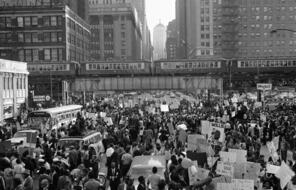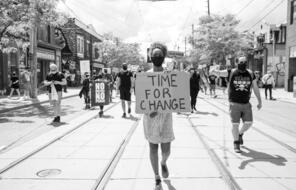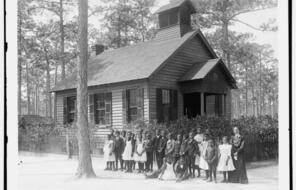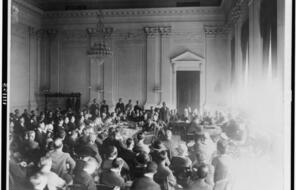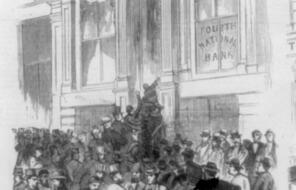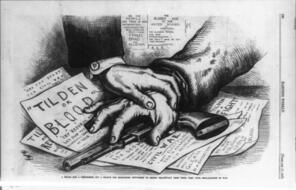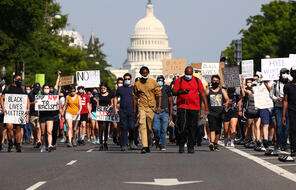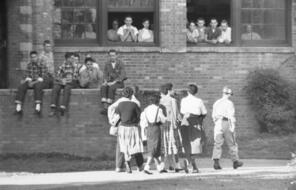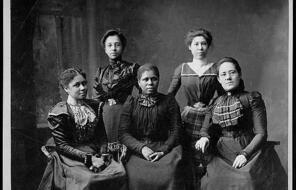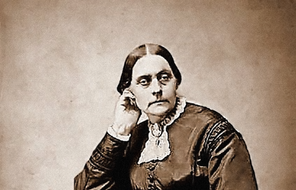A Time of Crisis: The Sanitation Strike
At a Glance
Language
English — USSubject
- History
- Social Studies
- Human & Civil Rights
- Racism
By the 1960s, the walls of segregation were coming down in cities and towns across the nation. Many white and Black Americans in Memphis took pride in the way their community had avoided the violence that accompanied integration in other places. Then on February 12, 1968, about 1000 of the city’s 1100 sanitation workers went on strike. That strike soon revealed deep divisions within Memphis.
“The white community,” writes journalist Joan Turner Beifuss, “saw ‘issues,’ either because it chose to or because it could not, in fact, see in any other way.” One “issue” was whether government workers ought be unionized. Another was financial. Where would the city get the money to pay the raises? Still another focused on whether the workers were being “manipulated” by “outside agitators.” To most African Americans, the strike had little to do with balanced budgets, union organizing, or interference from outsiders. In their eyes, the strike was about dignity and respect. That is why the strikers wore signs reading “I AM A MAN.” The pay for a sanitation worker in 1968 was $1.80 per hour. Even those who worked full time were eligible for food stamps. Yet the jobs the workers performed were not only essential to the community but also dangerous. Not long before the strikes began, two men were crushed to death in a garbage packer on one of the trucks.
The Ministers Association, a group of black and white religious leaders in Memphis, tried and failed to bring the two sides together. When the talks broke down, African Americans organized daily marches up and down Main Street. On February 23, violence erupted in the city for the first time. Who was responsible? The police claimed marchers rocked a police car. The strikers insisted that the car crossed into their lane and brushed against a marcher. No one knows what really sparked the incident. What is known is that the police responded by spraying Mace into the faces of the marchers, including a number of ministers. As a result, tension mounted in an already tense city.
By early March, the police were arresting strikers and their supporters for sitting in at City Hall and keeping replacement workers from moving garbage trucks. On March 18, Dr. Martin Luther King Jr. arrived in the city to show his support for the workers. At a rally, he told the workers, “Our society must come to respect the sanitation worker. He is as significant as the physician, for if he doesn’t do his job, disease is rampant.” On March 28, King returned to Memphis to lead over 5000 people on a march through the city. Twenty minutes after it began, a group of young African Americans began breaking windows and looting stores. The police immediately moved in with tear gas and nightsticks. The marchers scattered, running for shelter. As a result of the violence, a curfew was imposed on the city and over 3,800 National Guardsmen arrived in Memphis to keep order.
King and two Memphis ministers, James M. Lawson and H. Ralph Jackson, held a press conference later that day. They expressed sorrow that a small group had disrupted the march. They also vowed that the protests would continue until a settlement was reached. The next day National Guardsmen escorted the marchers as they walked up and down Main Street. One later recalled, “I wore that [‘I AM A MAN’] sign front and back. We had to go through all that just to be treated half-way fair. Somebody has to suffer for some good for somebody else. Anything good, there’s somebody who suffered for it.”
On April 3, as the strike dragged on, King came back to Memphis to lead yet another march. But before it could take place, a white assassin shot and killed the civil rights leader. The next day, April 5, 300 black and white members of the Ministers Association and the Interdenominational Ministerial Alliance marched from St. Mary’s Cathedral to City Hall. Rabbi James A. Wax spoke to the mayor on behalf of the two groups:
What we come here for this morning, sir, is to appeal to you out of the fervor of our hearts that this city shall be ruled with justice, and justice for all. I realize we live in a society of law and order. We must have laws. But I would remind you most respectfully, sir, that there are laws that are greater than the laws of Memphis and Tennessee--the laws of God.
The following day the President of the United States sent a federal negotiator to help settle the strike. This time, the two sides reached agreement on every issue but one. The last obstacle to a settlement was the demand for an immediate pay raise. Negotiators recommended a raise of ten cents an hour effective May 1, 1968 with an additional five cents per hour on September 1. The union accepted the proposal. City leaders were willing to go along with it but claimed they did not have enough money in the current budget to pay the raises. They were short by about $558,000. As negotiations once again came to a standstill, a private citizen offered a solution. Abe Plough, a Jewish philanthropist and businessman, offered to contribute the money for the raises provided that his name not be made public. The people involved agreed, but in time his identity became common knowledge.
While the two sides worked out the final details of a settlement, a number of people in Memphis decided that it was time for them to speak out. They formed a citizens group called “Memphis Cares” and sponsored an assembly on April 7 at Crump Stadium. About 7000 people applauded as black and white Americans voiced their concerns and expressed their support for the following statement:
We live in Memphis. It has been a good city, but far from perfect--much less perfect than many of us realized. Something happened here which laid bare a side of our common life to which all too many of us had been blind. We . . . solemnly, in the presence of God and of one another, pledge Ourselves . . . to the building of a city where people can trust one another, respect one another and respond to the needs of one another.
How to Cite This Reading
Facing History & Ourselves, “A Time of Crisis: The Sanitation Strike,” last updated December 20, 2017.
This reading contains text not authored by Facing History & Ourselves. See footnotes for source information.

